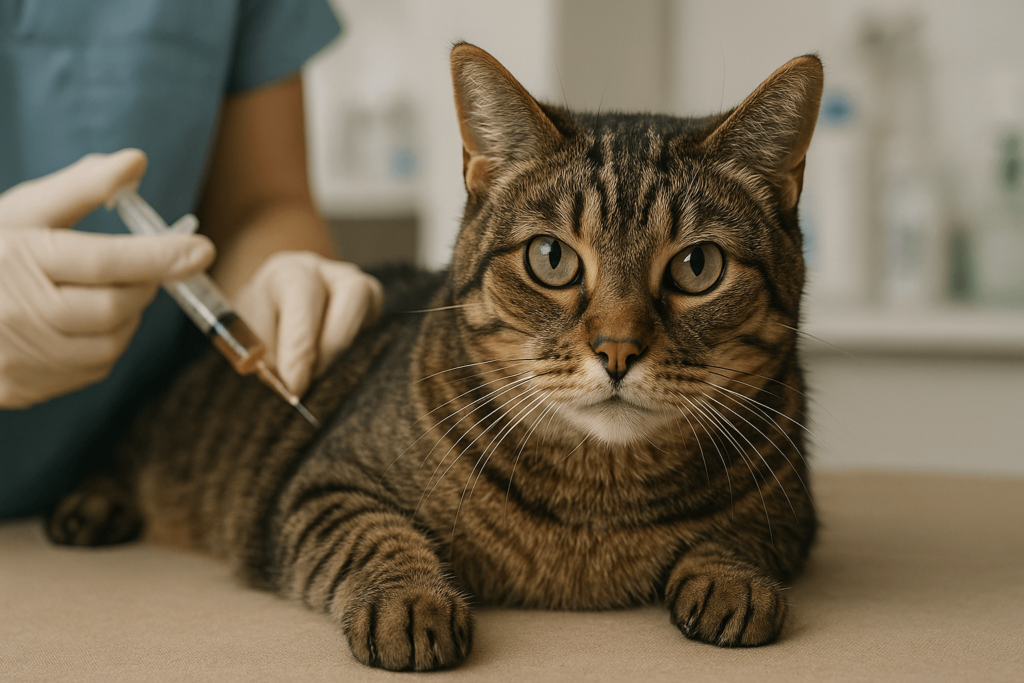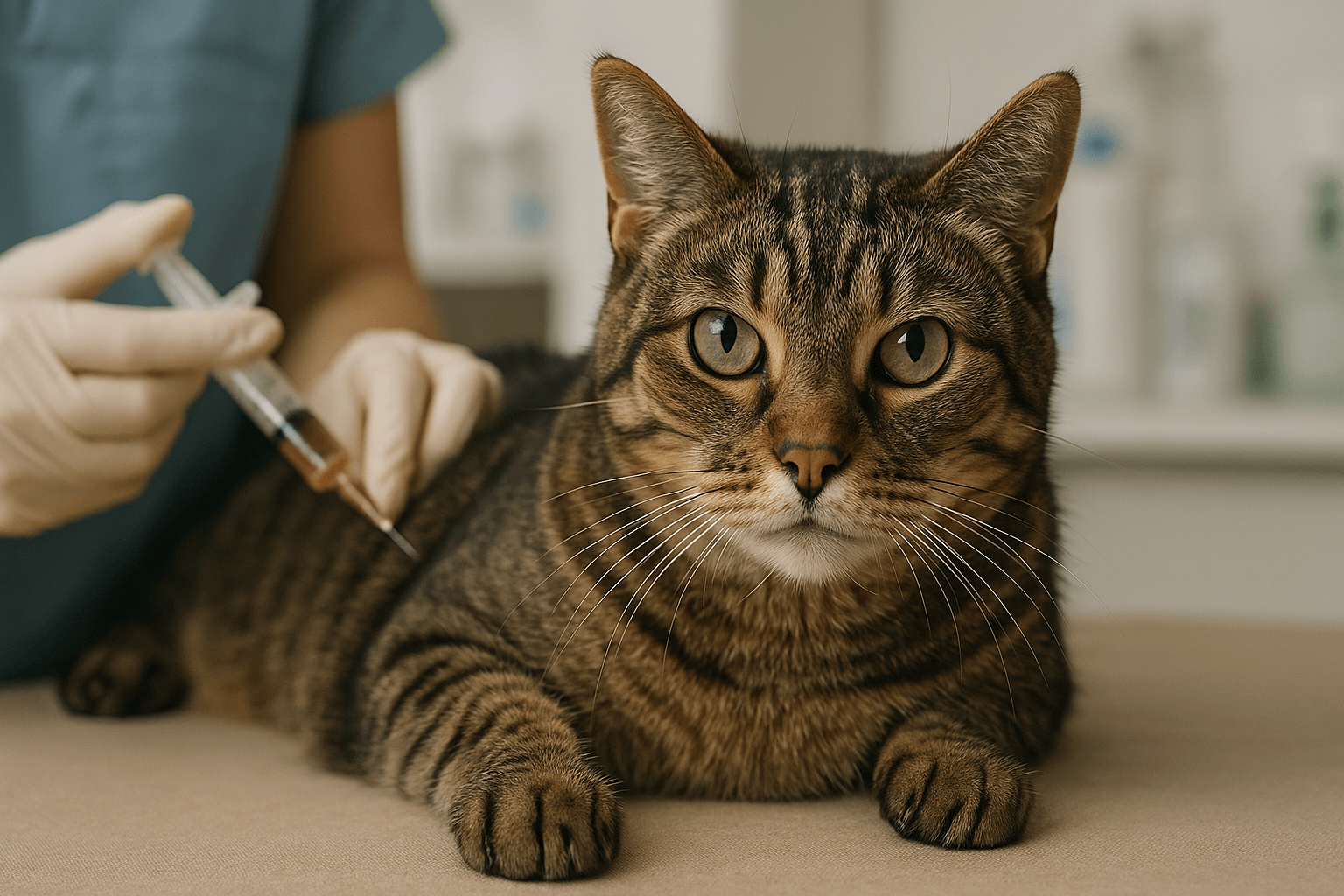Hypercalcemia in Cats: Understanding the Silent Threat
Hypercalcemia, or elevated calcium levels in the blood, is a condition that can silently affect cats and pose serious health risks if left untreated. While it may not be as commonly discussed as other feline ailments, hypercalcemia can indicate underlying health issues ranging from dietary imbalances to severe diseases like cancer. Recognizing the symptoms early and understanding the causes are crucial steps in ensuring your cat receives timely care. In this article, we’ll explore what hypercalcemia is, its potential causes, signs to watch for, and how to manage this condition effectively. Let’s dive into the details to keep your furry friend healthy and thriving.
Common Causes of Hypercalcemia in Cats
Hypercalcemia in cats can stem from a variety of sources, each requiring careful diagnosis and treatment. Identifying the root cause is essential for addressing the condition effectively.
Kidney Disease:
Chronic kidney disease (CKD) is one of the most common causes of hypercalcemia in cats. Impaired kidney function disrupts calcium regulation in the body.Cancer:
Certain types of cancer, such as lymphoma or squamous cell carcinoma, can lead to excessive calcium production or bone breakdown.Hyperparathyroidism:
Overactive parathyroid glands can result in increased calcium levels by releasing too much parathyroid hormone (PTH).Vitamin D Toxicity:
Excessive intake of vitamin D through supplements or certain foods can elevate calcium levels dangerously.Idiopathic Hypercalcemia:
In some cases, no clear cause is found, leading to a diagnosis of idiopathic hypercalcemia, which is more common in younger cats.
Understanding these potential causes allows veterinarians to tailor treatments to the specific needs of your cat, improving their chances of recovery.

Signs and Symptoms of Hypercalcemia in Cats
Detecting hypercalcemia early can make a significant difference in your cat’s prognosis. Watch for these subtle and overt signs that may indicate elevated calcium levels.
Increased Thirst and Urination:
Cats with hypercalcemia often drink more water than usual and urinate frequently due to kidney stress.Lethargy and Weakness:
Elevated calcium levels can lead to fatigue, weakness, and a lack of interest in normal activities.Loss of Appetite:
A sudden decrease in appetite or refusal to eat may signal underlying health issues, including hypercalcemia.Vomiting or Constipation:
Gastrointestinal disturbances, such as vomiting or constipation, are common symptoms of this condition.Muscle Twitching or Seizures:
Severe cases of hypercalcemia can cause neurological symptoms like muscle tremors or seizures.
Recognizing these symptoms promptly and consulting your veterinarian can help prevent complications and ensure timely intervention.
Check this guide 👉Understanding Panleukopenia in Cats: Best 7 Expert Tips!
Check this guide 👉Understanding Facial Alopecia in Cats: Best 7 Expert Tips!
Check this guide 👉Understanding Diabetes in Cats: Best 7 Expert Tips!
Causes of Hypercalcemia | Treatment Options |
|---|---|
Chronic kidney disease | Fluid therapy to flush excess calcium |
Cancer | Surgery, chemotherapy, or radiation |
Hyperparathyroidism | Medication or surgical removal |
Vitamin D toxicity | Discontinuing harmful supplements |
Idiopathic hypercalcemia | Dietary changes and monitoring |
Diagnosing Hypercalcemia in Cats
Diagnosing hypercalcemia involves a combination of clinical evaluations, laboratory tests, and imaging studies. Here’s an overview of the diagnostic process.
Blood Tests:
A complete blood count (CBC) and serum chemistry panel can reveal elevated calcium levels and provide clues about underlying conditions.Urinalysis:
Analyzing urine helps assess kidney function and detect abnormalities linked to hypercalcemia.Parathyroid Hormone Levels:
Measuring PTH levels determines whether the parathyroid glands are functioning abnormally.Imaging Studies:
X-rays or ultrasounds may identify tumors, kidney damage, or other physical abnormalities contributing to the condition.Biopsy or Fine Needle Aspiration:
If cancer is suspected, a biopsy or fine needle aspiration may be necessary to confirm the diagnosis.
Thorough diagnostics ensure an accurate understanding of the condition, enabling veterinarians to create effective treatment plans.
Managing Hypercalcemia at Home
While veterinary care is essential, there are steps you can take at home to support your cat’s recovery and manage hypercalcemia effectively.
Provide Fresh Water:
Encourage hydration by offering fresh, clean water at all times to support kidney function.Monitor Diet Carefully:
Avoid foods high in calcium or vitamin D, and follow your vet’s recommendations for a balanced diet.Watch for Behavioral Changes:
Keep an eye on your cat’s activity levels, appetite, and bathroom habits to catch any worsening symptoms early.Administer Medications as Prescribed:
Follow your veterinarian’s instructions for giving medications, such as diuretics or phosphate binders, exactly as directed.Schedule Regular Check-Ups:
Frequent veterinary visits allow for ongoing monitoring of calcium levels and adjustments to treatment plans as needed.
By combining professional care with attentive home management, you can help your cat live comfortably despite hypercalcemia.
Long-Term Effects of Untreated Hypercalcemia
If left untreated, hypercalcemia can have devastating effects on a cat’s health. These long-term consequences highlight the importance of timely veterinary intervention.
Kidney Damage:
Prolonged high calcium levels can lead to irreversible kidney failure, severely impacting your cat’s quality of life.Bone Loss:
Excessive calcium in the blood can weaken bones over time, increasing the risk of fractures.Cardiovascular Issues:
Hypercalcemia may contribute to heart problems, such as arrhythmias or hypertension.Neurological Disorders:
Chronic cases can result in persistent neurological symptoms, including confusion or seizures.Shortened Lifespan:
Without treatment, hypercalcemia can significantly reduce a cat’s lifespan due to systemic damage.
Addressing hypercalcemia early prevents these severe outcomes and ensures a healthier future for your cat.
Preventive Measures for Hypercalcemia
While not all cases of hypercalcemia can be prevented, certain measures can reduce the risk and promote overall feline health.
Regular Vet Visits:
Routine check-ups allow for early detection of potential health issues before they escalate.Balanced Nutrition:
Feed your cat a high-quality diet formulated specifically for their age, breed, and health status.Avoid Harmful Supplements:
Never give your cat human vitamins or supplements without consulting your veterinarian first.Encourage Hydration:
Provide wet food or add water to dry kibble to ensure adequate fluid intake.Monitor Senior Cats Closely:
Older cats are more prone to conditions like kidney disease, making regular monitoring even more critical.
Preventive care minimizes risks and keeps your cat in optimal health.
Emotional Support for Cats with Hypercalcemia
Managing hypercalcemia isn’t just about medical treatment—it’s also about providing emotional support to help your cat cope with the condition.
Maintain a Calm Environment:
Reduce stress by keeping your home quiet and peaceful, especially during treatment phases.Engage in Gentle Play:
Low-impact activities like gentle play or grooming sessions strengthen your bond and boost morale.Offer Comfort Items:
Provide cozy bedding and familiar toys to create a sense of security for your cat.Be Patient During Recovery:
Understand that recovery takes time, and your cat may need extra attention and reassurance.Celebrate Small Wins:
Acknowledge improvements, no matter how minor, to stay motivated and positive throughout the journey.
Emotional support complements medical care, fostering resilience and happiness in your feline companion.
Frequently Asked Questions About Hypercalcemia in Cats
What is a normal calcium level for cats?
Normal total calcium levels in cats typically range between 8.5 and 11.0 mg/dL, depending on the lab’s reference values.
Can diet alone cause hypercalcemia?
Yes, excessive dietary calcium or vitamin D supplementation can lead to elevated calcium levels.
Is hypercalcemia treatable?
Yes, with proper diagnosis and treatment, many cases of hypercalcemia can be managed effectively.
How long does treatment take?
Treatment duration varies based on the underlying cause but may require weeks to months of ongoing care.
Can hypercalcemia recur after treatment?
Yes, especially in cases of chronic conditions like kidney disease or idiopathic hypercalcemia, regular monitoring is essential.
Supporting Your Cat Through Hypercalcemia
Hypercalcemia in cats may seem daunting, but with early detection, proper veterinary care, and attentive home management, your feline companion can lead a happy and comfortable life. Understanding the causes, recognizing the symptoms, and following through with treatment are vital steps in safeguarding your cat’s well-being. Remember, your role as a loving and observant pet owner plays a critical part in managing this condition. By staying informed and proactive, you can ensure your furry friend enjoys the best possible quality of life despite the challenges of hypercalcemia.
Canned Pumpkin for Cat Diarrhea: Best 7 Expert Tips! Natural remedy to firm stools, soothe upset bellies, and support gut health safely.
Can a Cat Give You Scabies? Best 7 Expert Tips! Discover the truth about feline mites, human skin risks, and how to protect yourself—without panic.
Cat Flea vs Human Flea: Best 7 Expert Tips! Discover the truth about bites, species, and how to eliminate infestations for good.
Weird Cat Behaviors: Best 7 Expert Tips! Discover why cats do strange things—and how to understand, not punish, their instincts for a happier home.





